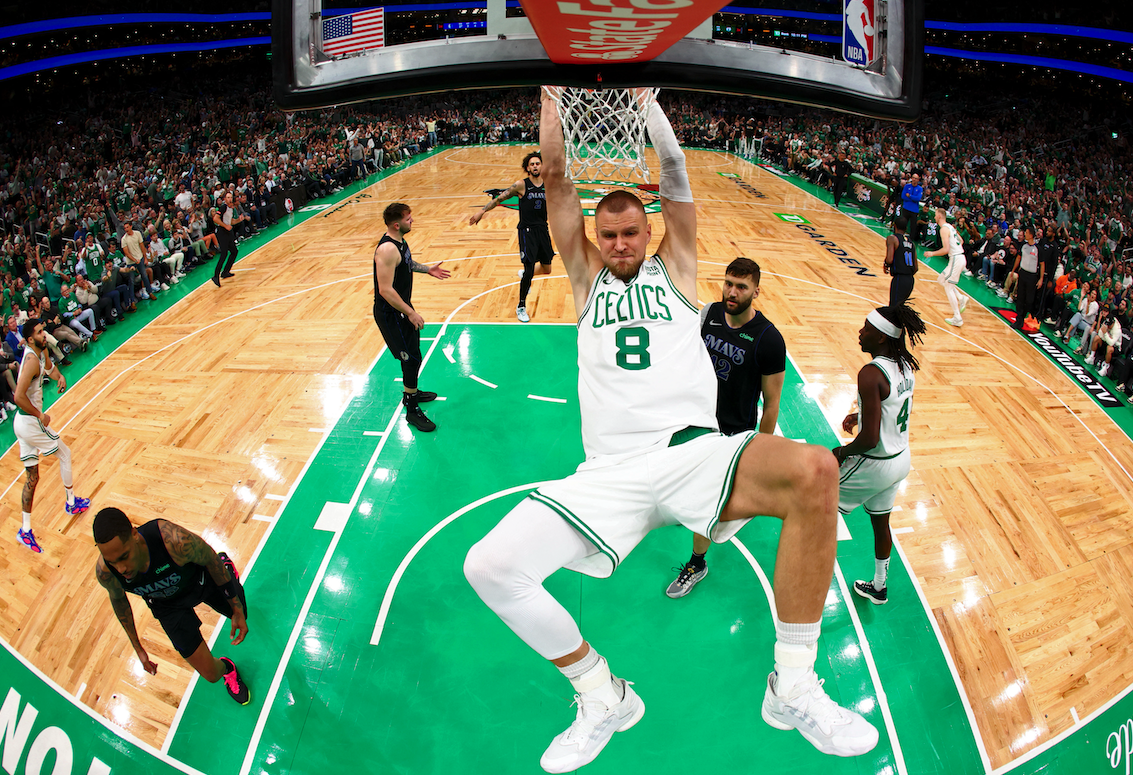The Boston Celtics defeated the Dallas Mavericks in five games to win the 2023–24 NBA title, and they seem to be a solid club going into the next campaign. Along with other supporting cast members that mesh well with their star duo of Jayson Tatum and Jaylen Brown, Boston boasts a solid core of players who have all signed long-term contracts.

Things aren’t exactly ideal, though. A player who has been a valuable member of the Celtics squad could perhaps be traded because of budgetary constraints.
To deal Kristaps Porzingis, the Celtics must
Kristaps Porzingis committed to a multi-year, around $60 million contract in 2023, which would keep him with the Celtics through the 2025–2026 campaign. Porzingis has a two-year contract left before he becomes a free agent, so the Celtics will probably have to pay a hefty price to keep him around beyond 2025–2026.
It makes more sense for the Celtics to sell Porzingis while they can receive something in return for him if they don’t want to keep him around or don’t think his market value would justify paying that much.
The Celtics front management may decide to hold onto Porzingis for the remainder of his deal if they believe he is essential to winning and agree that losing him in free agency would probably be pointless. They would be better off getting ready for life without Porzingis, though, if they believe the team can flourish without him. The nearer he goes to free agency, the fewer opportunities teams will have to give up to sign him.

Why Porzingis might be a candidate for a tradeThe team would be better off looking for a trade partner and receiving some assets in exchange if they are going to let him go without making a real attempt to keep him. It would be wiser for them to deal him now, in the offseason, rather than waiting until the January trading deadline.
The more time the Celtics hold off on dealing Porzingis, the more his contract depreciates and loses value. After all, the team that signs him in the middle of the season will only be able to use his talents for a shorter period of time before needing to pay a hefty salary to keep the star around for the long run.
As a result, trading Porzingis this offseason for a player who better matches the team’s long-term goals and budgetary flexibility makes the most sense.
The Rockets might be interested in trading with you.
The four and five places on the floor need to be extended by the Houston Rockets. They may attempt to trade for Porzingis in order to secure their future frontcourt if they don’t think Alperen Sengun can mature into a competent shooter.
Porzingis and Sengun combined for an average of nearly 40 points per game, making them a deadly frontcourt. They would have a deadly combination of interior and perimeter scoring from their frontcourt with Porzingis in tow.
Although Reed Sheppard was selected by the Rockets with the third overall choice in this year’s draft, they do not necessarily want to retain him in the long run. The team has a strong backcourt if they decide against trading Jalen Green. When Sheppard becomes available for trade, Boston will probably ask for him to start the negotiation process, so the Rockets should take it into account.
Sheppard doesn’t play in a position where Houston needs him right now, thus this selection might have been made with a trade in mind. To maintain flexibility, the Rockets selected a player that was highly regarded by many clubs in the draft. Sheppard has the potential to develop into a very useful player as the squad looks to add another star. Porzingis would be a good fit in that regard, but because he isn’t a household name, Houston may try to provide an alternative deal without their first-round pick in 2024.
It makes sense to get something back for Porzingis rather than nothing at all if Boston decides they’re not prepared to give him what he would probably fetch on the free market. It would still be a far better return than letting Porzingis walk for free in free agency, even if that meant just receiving one or two first-round picks as opposed to the four first-rounders package that seems to be the standard rate for stars these days.
Boston could either flip the assets in a later trade to acquire the next veteran player who gets dissatisfied and asks to leave his team, or they could use them to draft a more affordable and well-fitting young player in the next few years to complement their expensive and aging core. Because Boston’s executive management has done a fantastic job of creating a flexible rotation that can suit any player’s strengths, many players in the league would fit on the Celtics roster.
This would be a bold but dangerous move on the part of Boston’s front management.
The league’s top front offices operate by keeping an eye on both the present and the future. They are never content with where they are and are constantly trying to get their team to the next level. The front office in Boston is hardly an exception. They have shown that they are forward-thinking and that they can assemble a quality team of players who complement one another. The next move is to deal a player to whom they are unlikely to give a significant amount of money in free agency in order to maximize the worth of all of their assets and replenish their pipeline.